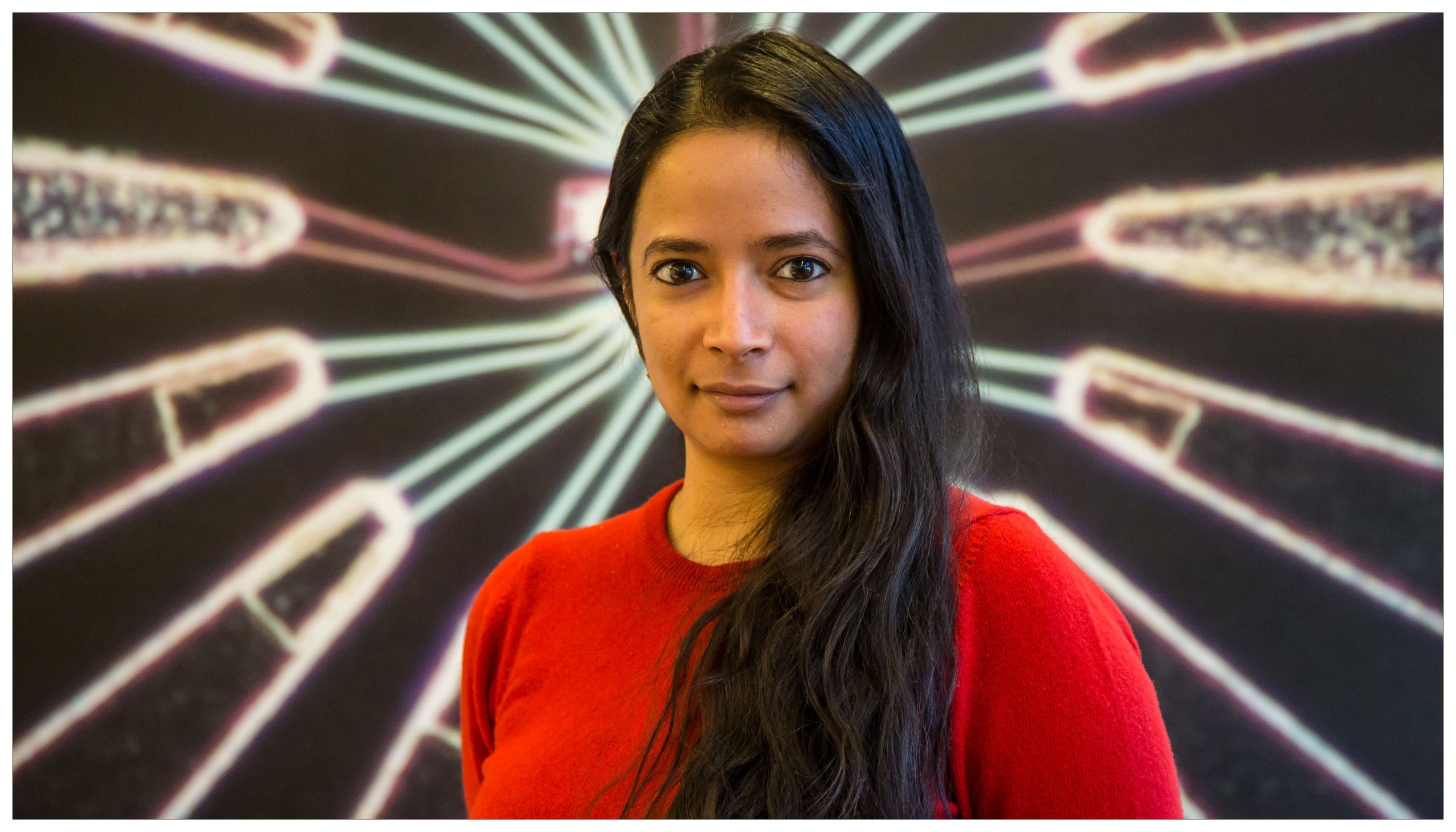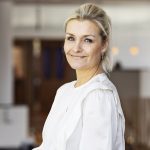Computer hardware is only as good as the software used to operate it – and quantum hardware is no different. With the support of a DKK 1 million grant from the Novo Nordisk Foundation Pioneer Innovator programme, Associate Professor Anasua Chatterjee from the Niels Bohr institute is bringing together expertise from different fields to develop precise and scalable quantum software with exciting commercial potential.
Anasua Chatterjee, Associate Professor of condensed matter physics at the Niels Bohr Institute in Copenhagen, is one of this summer’s recipients of the Novo Nordisk Foundation Pioneer Innovator programme, which seeks to support very early university-based research, discoveries and the development of novel technologies which have commercial potential.
In January 2023, the scope of the Pioneer Innovator programme was extended from focusing solely on health to also include sustainability and quantum computing. The programme aims to stimulate the investigation of ideas that may lead to the development of new products or systems, devices and technological platforms.
It is within the realm of quantum technologies that Professor Chatterjee’s research project lies.
A joint effort to create quantum software
Control software plays a crucial role in coordinating the complex operations required to harness the power of quantum computing and helps make quantum computers accessible to researchers and developers.
“With the help of this grant, our research project aims to develop a precise and scalable control software for quantum processors that will be easily implementable, to form a prototype product,” Professor Chatterjee says.
Professor Chatterjee believes that increased interaction between quantum technology and the new revolution in algorithms and machine learning and data science holds great potential within this field of research. “Our project will therefore bring together different expertise – with myself and Professor Ferdinand Kuemmeth from the Niels Bohr Institute focusing on the quantum hardware and physics, Assistant Professor Evert van Nieuwenberg, from Leiden University in the Netherlands working on the theory of computer systems and applications of machine learning, and Assistant Professor Oswin Krause from the Computer Science Department of the University of Copenhagen, bringing his expertise in machine learning.”
“Part of the grant will be used to fund an engineer who will take the algorithms from these experts in computer science and theory and help us implement them in a way that forms a coherent and seamless software framework.”
Moving from fundamental research to commercialisation
Professor Chatterjee grew up in a very large city in India. “I had always been good at science; when my father gave a copy of the Feynman Lectures in Physics I was captivated, and my path was set.” After finishing school, she moved to the US to study Physics at Princeton University. “I was deciding whether to pursue theoretical or experimental physics when I had the opportunity to work on an experimental research project in quantum physics. I loved being in the lab conducting experiments, and found quantum physics an incredible field in which to work. And it turned out that a lot of my skills and knowledge are quite useful for quantum technology and innovation.”
After completing her PhD at University College London, Professor Chatterjee moved to the Niels Bohr Institute where today her research is focused on building and operating quantum hardware.
“Quantum systems can do a lot of things, such as computation and simulation, where we may be hitting a roadblock with classical computing. This is a rapidly developing and commercialising sector, with breakthrough applications which can underpin a sustainable future,” Professor Chatterjee explains. “For example, there is currently a race to find a room-temperature superconductor. These are poorly understood because they are very hard to model on a classical computer, but the gains are potentially huge for sustainability – such as the completely dissipation-free transport of electricity, making them highly efficient for large-scale energy storage applications.”
“However, as we start to make quantum processors ever larger, we encounter a bottleneck in the processor’s operation, because of the lack of intelligent control software.”
Nurturing early-stage ideas
The Pioneer Innovator programme is perfect for projects such as hers, Professor Chatterjee says, as it fosters and nurtures very early-stage ideas.
“As a researcher, you often have a great idea and just don’t know how to take it forward. The Pioneer Innovator programme provides an amazing opportunity that makes it easy to go from fundamental research to something that can be commercialised and made useful. We couldn’t even think of doing this project without the grant.”
“I think there’s a real culture of innovation in Denmark and a knowledge economy here that suits me very well. The Novo Nordisk Foundation is a valuable part of this landscape. I believe the Foundation plays a significant role in keeping Danish research at the forefront of the scientific world,” she concludes.
What is quantum computing?
Quantum computing is an entirely new way of processing information, by harnessing the laws of physics that apply at the level of individual atoms, electrons and elementary particles.
Traditional computers store and process information using bits that represent either a 0 or a 1 – a two-dimensional computational space. Quantum computers, on the other hand, use quantum bits (qubits) which can exist in multiple states, giving a much higher-dimensional computation space. This ability, known as superposition, enables quantum computers to perform complex calculations and solve problems that would take traditional computers an enormous amount of time, or which would even be impossible.
About the Pioneer Innovator programme
Scientific areas:
Health: medical technology, industrial biotechnology or pharma and quantum technologies
Sustainability: sustainable agriculture, food, industrial and environmental biotechnology as well as carbon capture, utilisation and storage technologies, nitrous oxide and methane emissions and quantum technologies
Eligibility:
faculty member, researcher or student employed at a Nordic knowledge institution
Geography:
Nordic region (Denmark, Norway, Sweden, Iceland and Finland)
Funding:
The total grant budget is DKK 70 million in 2023, to cover both the Health and the Sustainability areas
Each granted project can receive a grant of up to DKK 1 million for one year
See the list of recipients of the Pioneer Innovator grant 2023
About the Novo Nordisk Foundation
Established in Denmark in 1924, the Novo Nordisk Foundation is an enterprise foundation with philanthropic objectives. The vision of the Foundation is to improve people’s health and the sustainability of society and the planet. The Foundation’s mission is to progress research and innovation in the prevention and treatment of cardiometabolic and infectious diseases as well as to advance knowledge and solutions to support a green transformation of society.









